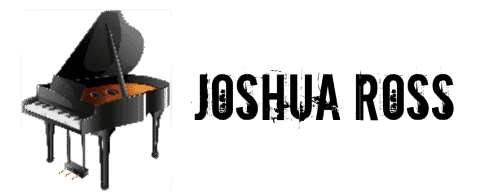As an Amazon Associate I earn from qualifying purchases.
When you’re pondering over whether Steinway pianos appreciate in value, the straightforward answer is yes, they often do.
Think of a Steinway not just as a musical instrument, but as a piece of history and craftsmanship.
For instance, a 10-year-old Steinway in good condition typically sells for about 75 percent of the current retail price, which usually increases by around 4 percent annually. Reflect on that Reuters report from 2003, which supports the enduring value of these instruments.
Want to Learn Piano?Click Here

Steinways are known for their high resale value partly because they are a venerable brand revered for quality.
If you maintain your Steinway piano properly, it can act like a fine wine, aging gracefully and potentially increasing in value over time.
Imagine spending time playing your grand piano knowing it’s not just an instrument but also a smart investment.
Evaluating Steinway Pianos as an Investment

When considering a Steinway piano as an investment, it’s vital to look at factors that impact its value over time and understand the difference between new and used models.
Factors Influencing Value Retention
The investment value of Steinway pianos can be influenced by several aspects including condition, age, model, and market trends.
A well-maintained Steinway retains its value better than one that’s seen significant wear or poor maintenance. Authenticity also plays a role; original components are important, as modifications or non-original parts can lower a piano’s resale value.
Steinway’s Brand Legacy and Market Demand
Steinway & Sons is synonymous with quality and legacy. This brand reputation boosts the market demand for Steinway pianos, both new and used.
Buyers often regard Steinway as a premium brand, which can lead to higher resale values compared to other piano manufacturers.
New vs. Used Steinway Pianos
New Steinway pianos come with the assurance of the latest design and technology, yet they are more expensive and can experience depreciation once purchased.
In contrast, used Steinway pianos typically depreciate less after the initial purchase and can even appreciate in value if they’re particularly sought after.
Imagine you’re considering a used Steinway Model B. This grand piano is often called “the perfect piano” because of its balanced size and excellent sound.
A used Model B that’s been well-cared for might not only maintain its cost but could become more valuable over time due to the Steinway brand’s enduring reputation for quality.
Investment Value of Steinway Pianos
When considering a Steinway piano, both its lasting monetary worth and intrinsic personal value are what make it a unique investment.
Depreciation and Appreciation
Imagine you’ve found a 10-year-old Steinway piano, and it’s in impeccable condition. You’d be looking at a value of roughly 75 percent of its present retail cost.
This is because, unlike most other pianos that depreciate quickly, Steinway pianos depreciate much more slowly.
Now, let’s say you’ve kept this piano well-maintained over the years, it might even maintain a greater percentage of its value or possibly appreciate, especially if it’s one of the larger, sought-after models.
Factors Affecting Investment Value
- Production Volume: With Steinway producing around 2,500 pianos yearly for the global market, their scarcity can enhance their value.
- Condition: How well you care for your Steinway can greatly impact its future sale price. A well-maintained Steinway is like a treasured family heirloom, potentially worth more as it ages.
- Size and Model: The type of Steinway also makes a difference. For instance, the grandeur of owning a 9′ Model D can come with a steeper price tag of approximately $171,000 new. Meanwhile, a more modest 5’1″ Model S has a new retail price closer to $69,700. If you’re eyeing a used Model D, it might set you back only about 48% of its MSRP—giving you the prestige at a more accessible price point.
Purchasing Tips and Considerations
When you’re in the market for a Steinway piano, understanding the value proposition is crucial. Here’s what to consider:
- Budget: Before approaching a piano dealer, be clear about your budget. Steinways come with a high price tag, but their longevity and craftsmanship may justify the cost.
- New vs. Used: Compare the depreciation curve of a new Steinway with a used Steinway piano. Used Steinways can offer more value for your money if properly maintained.
| Factor | New Steinway | Used Steinway |
|---|---|---|
| Cost | Higher upfront | More affordable |
| Maintenance | Lower initially | Might be higher |
- Maintenance & Tuning: Regular tuning and maintenance are critical for keeping your Steinway in prime condition.
- History & Restoration: Ask for the serial number to identify the history of the piano. Fully restored Steinways often carry a higher value.
- Craftsmanship & Build Quality: Steinway pianos boast state-of-the-art craftsmanship and durability. Factor in the quality of parts and any recent innovations when making your selection.
- Selection Process: Take your time and play several pianos at the showroom. Touch and hear what makes each a masterpiece.
Hello & thanks for stopping by! I’m a professional concert pianist and piano instructor. In the United States, I’ve given successful performances in several places including New York, Florida, Connecticut, & New Jersey, I have also performed internationally in Italy and made my Carnegie Hall debut in 2014. I enjoy blogging about the piano, the art of performance, general music, current events and the latest in music production.
